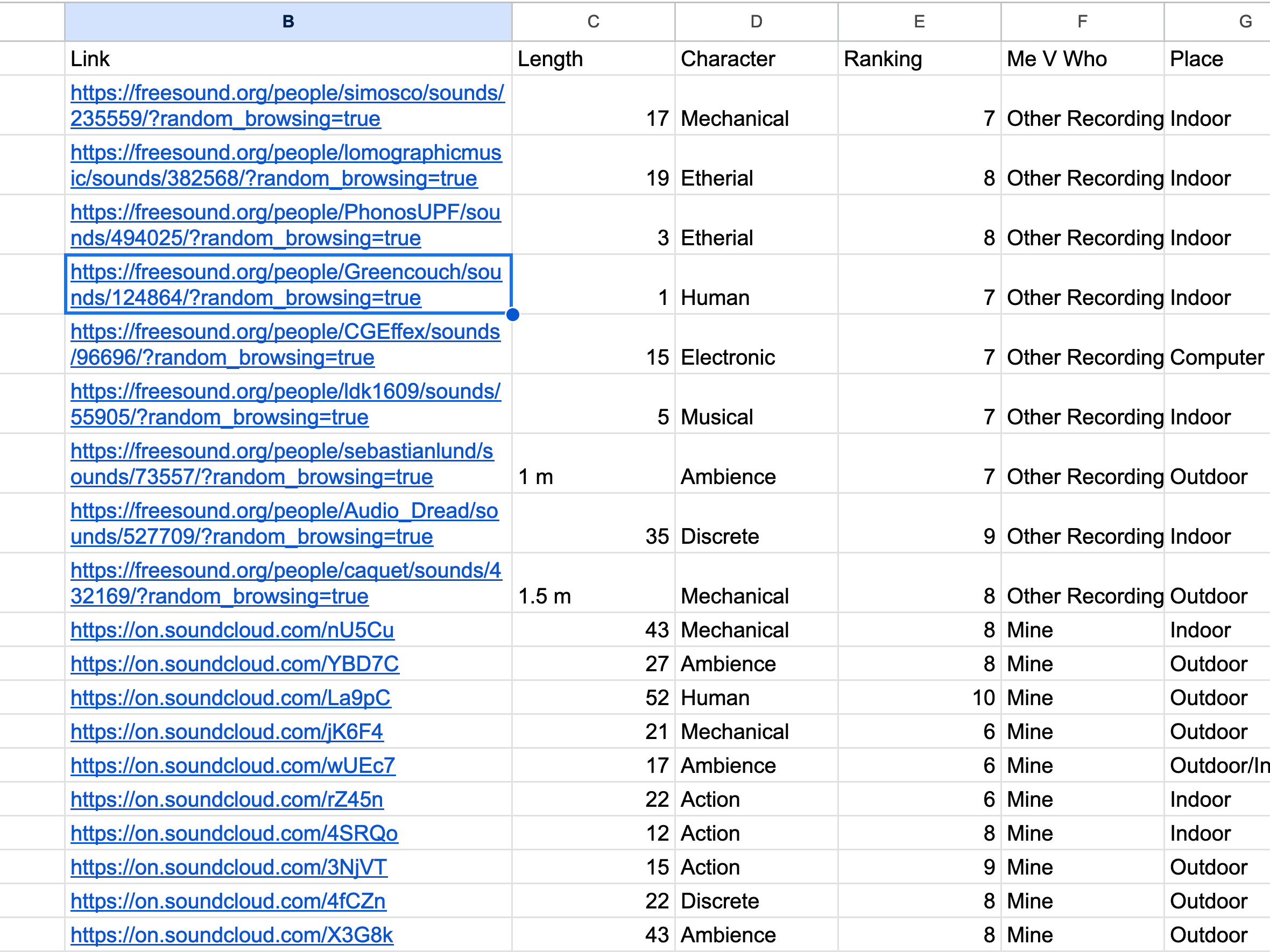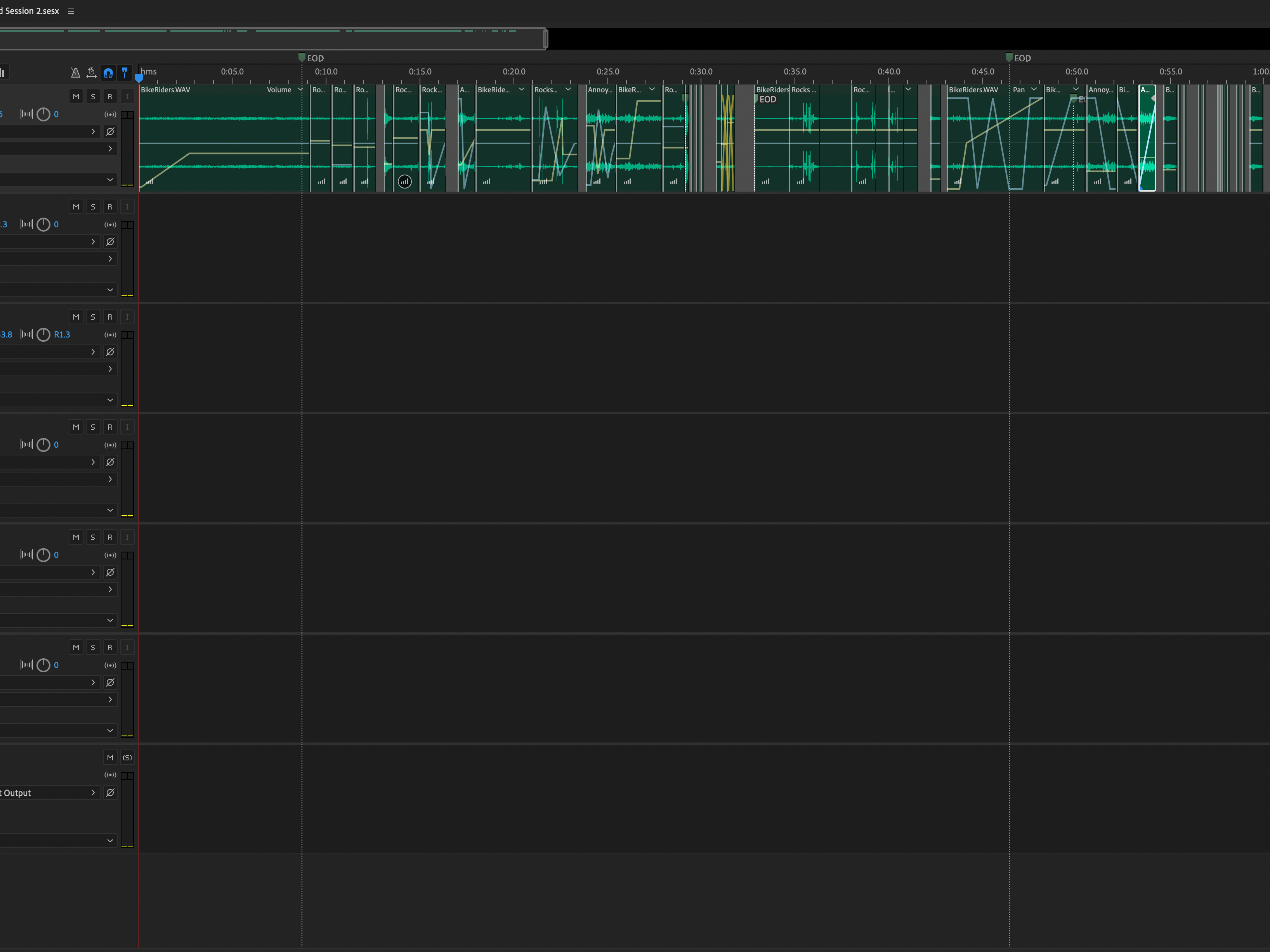Max Gibson
Sound
Prof. Miranda-Hardy
September 18, 2023
Reaction to Week One Readings:
Listening to Noise and Silence
The quote that stood out to me from “Listening to Noise and Silence” was one on page thirteen that reads, “In that position, sound is left to describe and enhance but never to do and become. It is a small adjective to the mighty visual noun, furnishing its objects and enhancing its perspective without being acknowledged in that position.” The quote refers to this position where sound is supplemental to visual and linguistic interpretation according to aesthetic values paraded by the West. I resonated with this quote because I am a serial perpetrator of doing just that, leaving sound to be the toppings of an experience instead of the main course. Both readings stressed that sound is often pushed to the side in favor of the visual in a particular experience and how sound is often lead to fill in the cracks of a visual experience. Reading these articles after completing the listening exercise has illuminated my views on how sound is processed and how essential it is to experiencing anything.
One thing that I believe is interesting to note is the correlation between the quote above and the other article’s concept of “offloading sound,” which, to my understanding, is that the auditory cortex has other parts of the brain process certain sounds you hear which are specialized, e.g., language, to keep better tabs of what specific sounds mean to a human being such as whether a sound you hear should be correlated with danger or opportunity. Why I believe this connection is essential is that, in a sense, the concept of offloading is somewhat the opposite of having sound the support of other aesthetic or sensory experiences and is instead other aspects of the brain, such as those working with language or visual sensing, add meaning and deepen an auditory experience. For example, one hears the sound of a car passing, and the visualization of a car in the brain tells the hearer not to jump into the street.
In the context of the listening exercise we did on the first day of class, where we were incredibly focused on the auditory rather than the visual, I found offloading helpful in describing my thoughts when listening. I immediately KNEW that the sound was rain and that drums were in a busy city street with cars passing. The offloading of sound into visual symbols allowed me to process the experience. However, what I KNEW was happening other people did not experience. For example, while I imagined a city street, Kalani imagined a place by the beach. To me, that sound of rushing water was a car driving in a puddle, but to him, that was a wave crashing. Furthermore, there was not only this difference in auditory opinion; there was the additional layer of no student in the class focusing on the visual occurrences of the experience, i.e., what was happening in the room. This all leads up to proof that an auditory experience is not at all supplemental to visual despite how it is somewhat perceived in today’s day and age.

